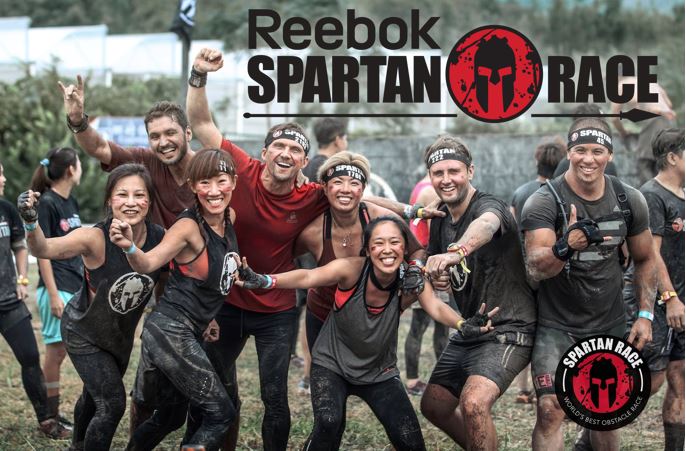
Grassroots marketing provides brands with a platform to connect with tightknit, endemic communities. But recent trends have found these communities can also deliver strong partnership marketing opportunities which can be scaled nationally. Brands like Reebok, Rain-X & Lucas Oil have all strategically leveraged endemic communities and their associated events to differentiate and grow their brands. This tactic has secured them unique market positions and legions of loyal brand ambassadors, while simultaneously conserving marketing budgets that would otherwise be exhausted compete directly against category competitors. Dissecting these strategic partnerships reveals a few key insights which can be leveraged for success.
Identify An Unbranded Cultural Interest
Hobbies, sports, crafts and cultural movements which unify people with a particular passion exist in hundreds of communities, yet remain fragmented. Brands looking to “own” a differentiated market position should identify these unbranded opportunities and look to consolidate them into major marketing platforms. Utilizing this strategy, the fitness brand Reebok successfully launched its biggest brand resurgence in decades. Rather than constantly fighting other top-tier athletic brands for marketing exposure, Reebok chose two lesser-known fitness communities to identify with. Both CrossFit and Spartan Races have cult-like followers whose passions border on fanatical. Since the fans of these sports are nearly all also active participants, Reebok is actually able become a “part of the community” organically, via the functional use and performance of their products. Reebok has been so successful with this strategy that their CrossFit line now outsells their traditional athletic gear. Reebok products can even be directly purchased at www.crossfit.com and www.spartan.com.
Use Events As A Platform
Thinking about the Reebok model, successful brands must find gatherings and events where their products (but not necessarily their brand) are being organically consumed. The functional benefit of the products are evident throughout the event, which in turn forms a lasting psychological connection with the consumer. The brand then shares in the accomplishments of the participant, ultimately transcending the limiting moniker of event sponsor. When integrated strategically, brand teams can add scale & structure to regional events, building towards consolidation. The first CrossFit games, held in 2007, featured a barbeque and were held on a private estate in California. Only five years later, in 2011, Reebok scaled them into a national stadium event with network television coverage.
Amplify The Organic Conversation
Passionate participants and followers of grassroots activities typically connect via online forums and social media. Authentic brands can seize the opportunity to not only take part in this conversation, but to leverage and amplify it. Formula Drift is a lesser known but growing race series in the United States. The emerging series consists of only 8 national events, but showcases a stable of young drivers with heavily engaged social media followers. The demographic following online and attending live events is younger than that of established race series such as NASCAR or the NHRA. ITW Global Brands, which consists of major automotive aftermarket brands like Gumout, Rain-X, Permatex and Fast Orange saw this series as an opportunity to deeply connect with their next generation of consumers. First they secured the overall series sponsorship under one of their brands. Then they sponsored multiple drivers and individual races under several of their other brands. This unified approach pooled marketing dollars and connected the fans to the entire family of brands. Further, their participation has helped to legitimize the emerging series which is now experiencing rapid national growth. It’s a reciprocal relationship where the brands actually help the series and drivers amplify their own reach. Several of their unrecognizable drivers (who typically hold day jobs) now boast social media posts which garner more views and shares than established NASCAR celebrities.
Reciprocity Wins
These partnerships work because they are a win for everyone. The grassroots movement gains exposure and legitimacy. The participants benefit as the community grows and resources are added. The brand is positioned as a differentiated and authentic partner. An extreme example of this is found in Team Lucas, an offshoot of the Lucas Oil company. Team Lucas identified nearly a dozen regional grassroots race series with limited exposure and unified them under the overarching umbrella of Lucas Oil Racing. They then invited dozens of brands to join them by sponsoring individual race events. The brands that partner with Lucas are already well known within the race communities, but would never have had the resources to connect this deeply with any of them. This “strength in numbers” approach, combined with Lucas’ own internal media house, provides the series, fans and sponsors with over 300 annual live events and an equal number of Prime Time programming.
Implications for the future
Though the examples cited in this article are sporting related, endemic and non-endemic brands alike can leverage this formula. Barnes and Noble, the world’s largest retail bookseller, just announced a national monthly book club designed to bring readers across the country together. This scaled approach will certainly benefit the retailer, but also the readers and many authors. What other fragmented community based movements and cultural trends could be a springboard for marketing consolidation? When the engagement is authentic, the partnerships mutually beneficial and the conversations amplified, brands can transcend sponsorship and become endemic partners, forging connections which create customers for life.


